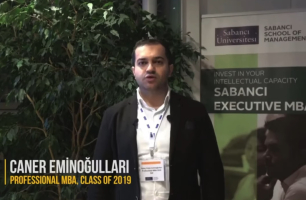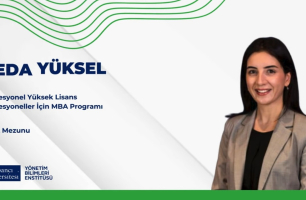The following list of electives is provided here to give candidates some idea about the type of courses offered in the program. Although the actual list of courses may vary every year, the provided list is mostly made up of courses that are offered regularly.
FIN 806 Behavioral Finance - 1.5 Credits
Behavioral finance combines psychological theories with economic and financial principles to explain the factors influencing financial decisions. While neoclassical economists assume that individuals act rationally, this is not always the case in real life. Behavioral finance examines market inefficiencies, misinterpretation of information, biases, and perceptual errors. The CFA curriculum emphasizes behavioral finance. This course explores irrational investor behaviors and the psychological biases that affect financial decision-making.
FIN 899 Wealth Management - 1.5 Credits
The course emphasizes the practical aspects of financial portfolio management. It aims to develop students' understanding of portfolio management by engaging them in real-life problem-solving throughout the course. Topics include the investment decision-making process, investment policy statement, individual and institutional portfolio management, capital market expectations, asset allocation, and the technical and practical principles of portfolio management activities.
MGMT 816 Sustainability Transformation - 3 Credits
The course aims to accelerate the business world’s transition to sustainable development through action-oriented, interdisciplinary, and applied approaches. It offers a critical perspective by examining the intersections of sustainable development, markets, and business organizations from a multi-stakeholder viewpoint. Topics include the re-conceptualization of a firm's purpose, governance impacts, the transformation of financial markets, and transformative networks.
MGMT 824 Negotiation Skills – 1.5 SU Credits
Negotiation skills are a crucial component of managerial abilities. This course focuses on developing negotiation skills, enabling participants to act more consciously and competently in challenging situations. Additionally, it provides opportunities to recognize negotiation settings in daily life and improve these skills. The course is based on discussion and role-playing methods, allowing participants to engage in active negotiations.
MGMT 841 Digital Transformation and Innovation – 1.5 SU Credits
Digital transformation in industries is blurring the boundaries between the cyber and physical worlds, creating synergy. Decision-makers must thoroughly understand the enabling technologies and approaches of this transformation to maintain competitiveness. Digital transformation has increased the importance of innovation in global competition and has influenced the four traditional operational priorities: cost, quality, flexibility, and delivery. This course aims to discuss these concepts, case studies, and best practices.
MGMT 842 Technology Management – 3 SU Credits
This course focuses on concepts, models, and methods for the effective development and utilization of technologies. Technological innovations are examined to understand management challenges. The first section covers micro-level topics such as technology generation, research, selection, implementation, and termination at the firm level. The second section discusses the technological evolution of industries and firms, the emergence of new industries, and factors affecting innovation performance. The course aims to develop a systemic perspective to understand the relationships between technology, production, and management.
MGMT 871 Design Thinking and the Power of Storytelling in Business – 1.5 SU Credits
This course introduces students to the concepts of design thinking and storytelling. Design thinking focuses on user-centered innovation and experience, emphasizing iteration, experimentation, and empathy in problem-solving. Storytelling enables the effective communication of innovations and visions. Students will apply these concepts through two projects: the first focuses on problem-solving and prototype development, while the second emphasizes storytelling applications.
MKTG 807 Sales Management – 1.5 SU Credits
The Sales Management course aims to examine the effectiveness of the sales force and its role in marketing efforts. It helps students understand the impact of marketing. Course objectives include teaching the sales process, the relationship between sales and marketing, sales force structure, customer relationship management (CRM), technology usage, and the selection, training, motivation, and compensation of sales representatives.
MKTG 819 Trade and B2B Marketing – 1.5 SU Credits
This course focuses on the characteristics and methods of B2B marketing. B2B marketing requires reaching a limited number of customers in large batches and with long cycle times. Topics include industry-based marketing approaches, the use of Unique Buying Propositions (UBP) instead of Unique Selling Propositions (USP), and relationship marketing. Additionally, the processes of winning and losing bids, a long-term perspective, and commercial marketing will be discussed.
MKTG 823 International Marketing – 1.5 SU Credits
The International Marketing course introduces graduate students to the fundamentals of the global business world and prepares MBA students for complex challenges they may face. The course aims to provide knowledge on strategic marketing practices. It examines how companies from Japan, the U.S., and Europe operate in international markets, as well as firms in emerging economies.
ORG 804 Creativity and Leading Innovations – 3 SU Credits
This course focuses on key concepts, models, and methods that enable managers to enhance creativity within organizations and develop innovative product and service ideas. The goal is to cultivate a critical mindset on creativity and innovation processes through tools, case studies, and an in-depth review of academic literature. Participants will gain knowledge and practical applications to enhance innovative capacity.


